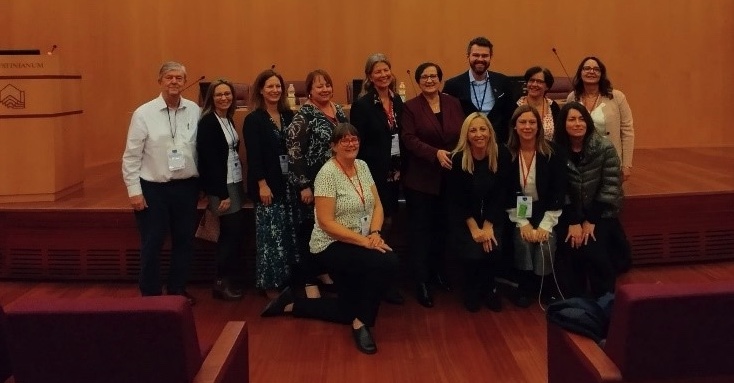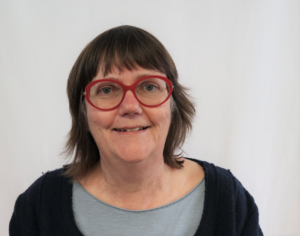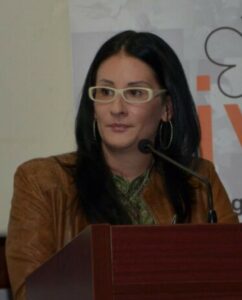EpiCARE ePAG

Patient working group & advocates
Between 6,000 and 8,000 rare diseases affect an estimated 30 million people in the European Union. An unfortunate feature of rare diseases and complex conditions is the fragmentation of specialist knowledge, which is often not available in the patient´s region or country. Many patients therefore might not receive a satisfactory explanation for their symptoms, have delays to correct diagnosis or have access to the necessary knowledge on treatment options, rehabilitation and care.
That is the reason for the ePAG existence : they act as EpiCARE patient representatives, they are the voice of patients and produce deliverables to support patients and their families and to facilitate communication between them and the healthcare professionals.
The EpiCARE Patient Working Group comprises ePAG (European Patient Advocacy Group), Patient Advocates who are either leaders in rare and complex epilepsy patient organisations from across Europe, or patients themselves.
This group enables EpiCARE patient representatives to work together on common issues, and are involved in all EpiCARE activities. The ePAG have two Chairs who sit on the EpiCARE Executive Committee as well as several advocate members who participate in Working Groups.
Find out more about your ePAG EpiCARE advocates:
Find out more about your ePAG EpiCARE Patient Representatives:
How to apply to join ERN EpiCARE ePAG:
If you wish to join EpiCARE ePAG please read the Terms of Reference approved by ePAG EpiCARE and fill in an online application form.
The application form is also available in pdf format, as well as the endorsement letter template. Both of these can be downloaded through the links below. Please complete these and return the signed documents to epag.epicare@gmail.com.
Resources
Please find downloadables resources on the following links :
- Patients and caregiver leaflets: it contains extensive information on specific disease, such as Dravet syndrom for example.
- Rare epilepsies and patient’s journey: Patient’s journey describe the health-care pathway, provide a key perspective of those living with a rare disease, and allow for a constructive discussion between clinicians and patients.
- Presentation of the Common Unmet Needs within the Patient Community developed for the European Conference on Rare Diseases 2020
Would you like to be regularly informed about the work of EpiCARE? Do you want to be consulted on unmet patient needs and/or be willing to be a patient representative for your rare disease?
If the answer is YES, then sign up to join our EPAG Patient Community!
Our goal is to truly represent the wider patient voice of all rare and complex epilepsies across Europe: this is where you come in.
You can join through EURORDIS here – it is a quick and simple online registration portal.
The key pre-requisites are that you must be able to speak fluent English and that your rare disease is listed within the 130 rare and complex epilepsies currently supported within EpiCARE.
In March 2011, a new Directive was adopted by the European Parliament and the Council of the European Union: Directive 2011/24 on patients’ rights in cross-border healthcare. The directive sets out the conditions under which a patient may travel to another EU country to receive safe and high quality medical care and have the cost reimbursed by their own health insurance scheme. It also encourages cooperation between nation healthcare systems.
The links below provide further information about cross-border healthcare:
- Know your rights on transborder care (leaflet)
- Patients’ Rights in Cross-Border Healthcare (video)
- Crossborder-healthcare-leaflet(leaflet – other languages here)
- The list of national contact points for Cross-Border Healthcare
- EU Commission’s DG Health & Food Safety (SANTE)’s page on Cross-Border Healthcare
- National contact points and info about EU regulation
Contact
Newsletter
If you would like to receive the monthly newsletter of the EpiCARE ePAG, please subscribe here by providing your e-mail address:
https://epi-care.eu/wp-content/uploads/2024/04/Newsletter_March_24.pdfFind the pdfs of the previous newsletters here:
- First ePAG newsletter! February 2023
- March 2023 ePAG Newsletter
- April 2023 ePAG Newsletter
- May 2023 ePAG Newsletter
- June 2023 ePAG Newsletter
- July 2023 ePAG Newsletter
- September 2023 ePAG Newsletter
- October 2023 ePAG Newsletter
- November 2023 ePAG Newsletter
- December 2023 ePAG Newsletter
- January 2024 ePAG Newsletter
- February 2024 ePAG Newsletter
- March 2024 ePAG Newsletter












 \
\

